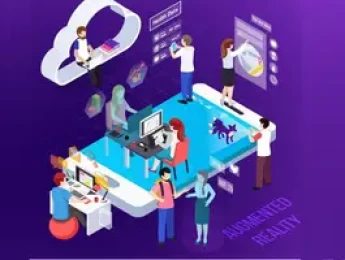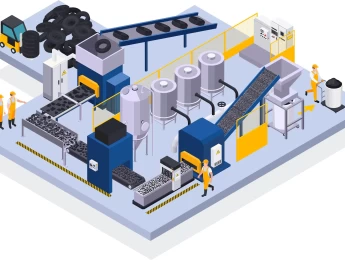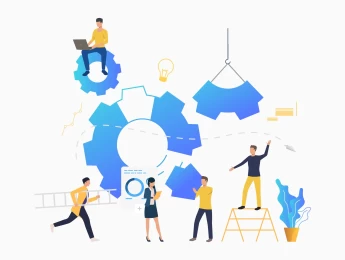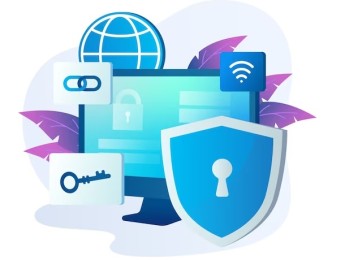The transport system is a vital component of modern city planning worldwide. However, older and more traditional systems have an increasing number of complications and challenges as the demands of the transport systems have evolved. Integrating intelligent transportation solutions is incredibly effective in addressing these modern problems.
For established systems, it can be extremely difficult to address issues such as traffic flow and congestion directly through the system's physical infrastructure. The transition to utilising intelligent transportation solutions can greatly remove the pressure on the current physical systems. Intelligent transportation systems can reduce congestion, increase vehicle safety, and increase user accessibility.
Not only do intelligent transportation systems benefit their users, but they are also highly beneficial in reducing costs, increasing investment returns, and reducing negative environmental impact.
Intelligent transportation solutions use existing and emerging technologies, including commutation and information technologies, to improve traffic systems. Vehicle-to-vehicle (V2V) data communication is becoming increasingly important for this. As V2V technologies have developed, the use of self-driving and operated vehicles has risen dramatically.
Upon completion of this course, participants will be able to:
- Understand the importance of intelligent transportation solutions.
- Review how intelligent transportation benefits modern society.
- Analyse the details of intelligent transport systems (ITS) architecture.
- Assess the process of planning, designing, and implementing intelligent transport systems.
- Conduct risk assessments and create risk management plans for intelligent systems.
- Implement risk mitigation measures for intelligent transport system projects.
- Understand the role of vehicle-to-vehicle communication.
- Utilise existing and new technologies to improve the level of service in traffic and transport.
This course is designed for anyone responsible for transportation planning, design, and development. It would be most beneficial for:
- Civil Engineers
- Traffic Engineers
- Urban Planners
- Project Managers
- Chief Technology Officers (CTOs)
- Chief Information Officers (CIOs)
- Strategic Development Managers
- Data Analysts
This course uses a variety of adult learning styles to aid full understanding and comprehension. Participants will review case studies of real-world transport systems and how intelligent solutions have been implemented to resolve major challenges.
They will be provided with all the necessary tools and equipment to carry out the various learning exercises. Alongside the overall case studies, participants will partake in presentations, group discussions and practical demonstrations to ensure they develop a thorough understanding of the taught content. They will also be granted the opportunity to create their own intelligent solutions to examples of traffic issues.
Day 5 of each course is reserved for a Q&A session, which may occur off-site. For 10-day courses, this also applies to day 10
Section 1: Introduction to Intelligent Transport Systems
- The history of transport systems.
- How traditional transport systems are evolving into intelligent transport systems.
- The advantages and disadvantages of intelligent transport systems.
- How various factors influence system design – infrastructure, vehicle, and transport mode.
- Concepts and principles of standard design practices.
- The architecture of intelligent transport systems.
Section 2: Intelligent Transport Project Management
- Identifying the needs and demands of existing transport systems.
- Understanding the project lifecycle for intelligent transport systems.
- What factors influence the project development and outcome.
- Assessing goals and objectives for intelligent transport systems and transport solutions.
- The importance of effective risk management.
- Project development, inspection, and quality control.
Section 3: Intelligent Transport System Design
- Assessing the ideal outcome for the system design.
- Utilising intelligent transport systems to find solutions to common issues such as traffic flow and congestion.
- Reviewing the types of congestion, their causes, and consequences.
- Designing intelligent transport solutions for various congestion types.
- Ensuring transport systems are understandable for users.
- Balancing efficiency with public safety.
Section 4: Transport and Management Centres
- The role of traffic and transport management.
- The functions and structures within traffic and transport management centres.
- Data gathering and analysis.
- Utilising analysed data to further develop intelligent transport solutions for inefficient transport systems.
- Adaptive intelligent transport systems infrastructure.
Section 5: Trends in Intelligent Transport Solutions
- The implementation and development of vehicle-to-vehicle communication.
- The popularisation of self-driving vehicles.
- The use of mobility data for urban planning and development.
- Hyperloop and its potential to completely evolve how transport systems are utilised.
Upon successful completion of this training course, delegates will be awarded a Holistique Training Certificate of Completion. For those who attend and complete the online training course, a Holistique Training e-Certificate will be provided.
Holistique Training Certificates are accredited by the British Assessment Council (BAC) and The CPD Certification Service (CPD), and are certified under ISO 9001, ISO 21001, and ISO 29993 standards.
CPD credits for this course are granted by our Certificates and will be reflected on the Holistique Training Certificate of Completion. In accordance with the standards of The CPD Certification Service, one CPD credit is awarded per hour of course attendance. A maximum of 50 CPD credits can be claimed for any single course we currently offer.
- Course Code IND03-105
- Course Format Online, Classroom,
- Duration 5 days














